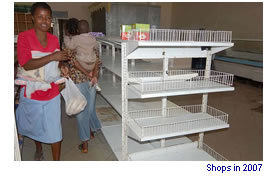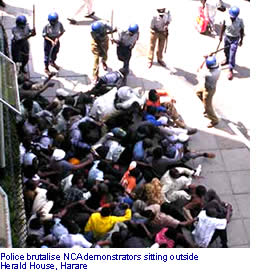The art and soul of building peace
Thursday, October 25th, 2007 by Bev ClarkThe Moral Imagination is an important book to get hold of and spend some time with if you’re involved in conflict resolution and peace building. The author, John Paul Lederach, has mediation experience in a variety of countries including Nicaragua, Somalia, Northern Ireland and the Philippines. According to Lederach, peace building is both a “learned skill and an art”. He believes that people working for peace should regard their pursuit as a creative act.
In Chapter 2 Lederach includes four powerful stories of peace building from different countries including Colombia. In the Colombian example he looks at the emergence of a group called the Association of Peasant Workers of Carare (ATCC) and says “their first act was to break the code of silence. They developed ways of organizing and participating. Participation was open to anyone. The quota for entry was a simple commitment: Your life, not your money. This was expressed in the phrase “We shall die before we killâ€. They developed a series of key principles to guide their every action.”
During these challenging times in the pro-democracy movement in Zimbabwe, I think its useful for us to consider how we can apply these principles while working for peace:
1. Faced with Individualization: Solidarity.
2. Faced with the Law of Silence and Secrecy: Do everything publicly.
3. Faced with Fear: Sincerity and disposition to dialogue. We shall understand those who do not understand us.
4. Faced with Violence: Talk and negotiate with everyone. We do not have enemies.
5. Faced with Exclusion: Find support in others. Individually we are weak, but together we are strong.
6. Faced with the need for a Strategy: Transparency. We will tell every armed group exactly what we have talked about with other armed groups. And we will tell it all to the community.












